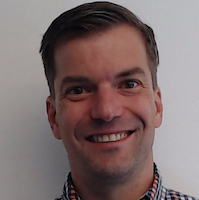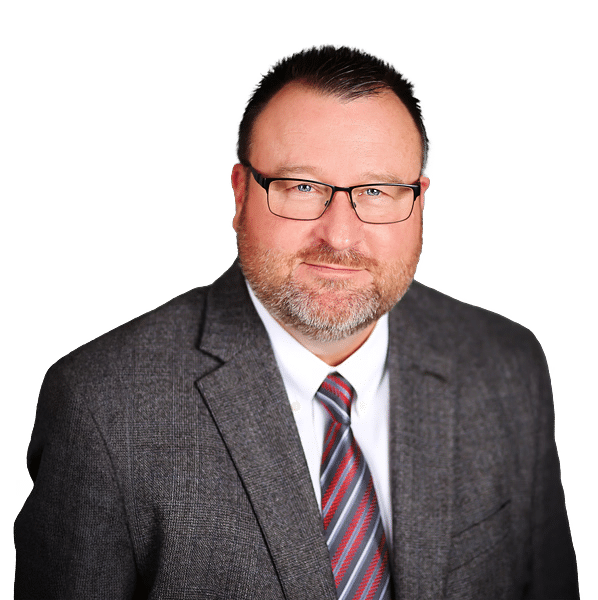Empowering Recovery Through Substance Use Disorder (SUD) Treatment & Hybrid Programs
As health care delivery models evolve, the need for innovative and accessible solutions for complex conditions becomes increasingly apparent. Among these, substance use disorder (SUD) presents unique challenges that demand a multifaceted approach. A coordinated strategy that meets individuals with SUD where they are is essential for improving outcomes. A recent Lucet webinar featuring Dr. Adam Ligas (Medical Director) and Heath Vandeventer (Senior Director, Clinical Access) explored the transformative potential of member-centric SUD hybrid programs, which incorporate authorization activities and care management supports that align with the strengths of in-person and virtual care.

“Treatment can leverage technology in order to improve access and efficiency. There are ebbs and flows related to how ready somebody is and how safe they are in order to engage with the treatment.”
Adam Ligas, MD – Medical Director
Understanding the complexities of SUD recovery
Dr. Ligas emphasized from the outset that “there isn’t a one-size-fits-all approach” to treating SUD. The intricate nature of addiction necessitates a multi-layer approach with flexibility in order to address individuals where they are. This includes where they are practically, but also emotionally to ensure that they have the necessary resources. This holistic perspective acknowledges that recovery is rarely a linear path. Heath Vandeventer noted how “for many people with SUD, that trajectory can be kind of a fairly bumpy ride with some high moments, a lot of low moments, and many in between moments.” Consequently, effective treatment must be tailored to that individual, understanding their recovery history, current situation and future goals.
Addressing the challenges in accessing care
Despite a growing number of treatment facilities and providers for SUD, significant challenges persist in ensuring individuals receive the right care at the right time. Geographical barriers and shortages of providers, particularly in rural areas, can severely limit access. Furthermore, the dynamic nature of an individual’s readiness for change and the potential for relapse underscore the need for flexible and readily available support.
The power of hybrid programs: a flexible and comprehensive solution
SUD hybrid programs offer a promising solution by having a single point of contact to assist with authorizations and care approvals, while also supporting members and their providers to enhance accessibility and continuity of care. This blended approach leverages technology to overcome geographical limitations and address gaps between care visits, effectively bringing care to individuals where they live, work and play. “Treatment can leverage that technology in order to really level up and improve access and improve efficiency,” Dr. Ligas explained. Facilitating timely care connections is crucial, as “there are ebbs and flows related to how ready somebody is, how safe they are in order to engage with the treatment.”

“Having care managers as the singular point of contact throughout care provides us a unique opportunity to ensure whole person care is being provided, understanding SDoH barriers — the specific dynamics that might be at play related to their occupation, family and social circles.”
Heath Vandeventer – Sr. Director, Clinical Access
Key elements of effective hybrid programs
The webinar shed light on several key components that contribute to the success of SUD hybrid programs:
- Care Coordination with a Single Point of Contact: Care managers that are directly involved in authorization decision making play a vital role in engaging members in whole-person care, acting as a consistent point of contact throughout their treatment journey. This singular point of contact helps ensure that both members and their providers are aligned and informed.
- Technology-Enabled Navigation and Support: Technology facilitates real-time direct scheduling with outpatient providers, offers various treatment modalities and helps address social determinants of health (SDoH). Lucet’s Behavioral Health Index (BHI®) serves as a valuable tool for assessing clinical acuity and matching individuals with the appropriate level of care.
- Addressing Social Determinants of Health (SDoH): Recognizing that factors like social support, housing and transportation significantly impact recovery, hybrid programs actively assess and connect members with relevant resources. Heath Vandeventer pointed out how understanding a member’s social support system and ensuring it is recovery friendly is crucial.
- A Stacked Provider Approach: This model ensures a comprehensive continuum of care, addressing acute needs while also providing support for chronic conditions and facilitating access to specialty treatment.
Demonstrating impact: improved outcomes and cost savings
The implementation of member-centric SUD hybrid programs has demonstrated significant positive impacts. Lucet’s data shows that for members with primary SUD care management results in $3,787 in Total Medical Expense (TME) savings, a 46.2% decrease in emergency department visits and 26.8% fewer inpatient admissions.
Empowering sustainable recovery
Member-centric SUD hybrid programs represent a critical step forward in addressing the complexities of the disorder. By leveraging technology for enhanced access and coordination and proactively addressing SDoH, these programs offer a flexible, comprehensive and ultimately more effective approach to supporting individuals on their recovery journey. These programs bridge the gaps in traditional treatment models, empower individuals to achieve sustainable recovery and improve members’ overall quality of life.
Rachel Jenkins is a marketing manager, Adam Ligas, MD is a medical director, and Heath Vandeventer is senior director of clinical access at Lucet.



